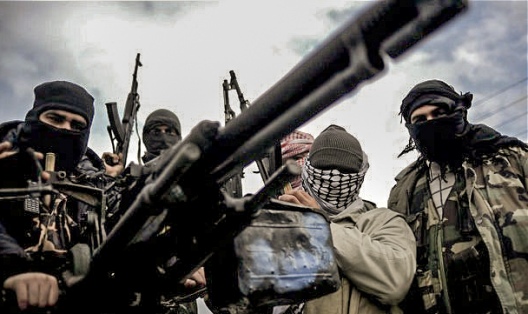
The latest rebel infighting in Syria illustrates how profoundly the uprising has changed Syrian political culture. In the last week, rebel groups across a broad ideological spectrum mounted coordinated attacks on transnational jihadist militants in the country’s central and northern provinces. The campaign’s scale, motives, and apparent effectiveness challenges the conventional wisdom that jihadists hijacked the revolution or that the uprising has lost its legitimacy altogether. It shows that the uprising has permanently changed the landscape of Syrian politics for the better, suggesting that a rebel victory is more likely to improve political life in Syria than a regime victory.
It is tempting to explain this campaign as a mere power struggle between Islamist nationalist militant groups led by the Islamic Front and the jihadist al-Qaeda offshoot, the Islamic State of Iraq and Sham (ISIS), but that reasoning would fail to capture its real significance. Interestingly, the armed offensive has been accompanied by widespread, coordinated civilian protests against ISIS, reminiscent of the early days of the peaceful uprising. Many Syrians are fed up with the brutality, arrogance, and oppressive rule of ISIS, who have detained, tortured and executed untold numbers of civilian activists, journalists, aid workers, and civilians who violate its beliefs. Indeed, many Syrians understandably see ISIS as worse than a regime whose cruelty was somewhat more predictable and focused.
The other driver of the backlash against ISIS includes its attacks on other rebel groups and prioritization of holding and governing territory over fighting the regime’s armies and militias. While other rebels see defeating the regime as an end in itself, ISIS sees it as a means to the much broader end of establishing a transnational Islamist caliphate—a vision that has shaped both its operational priorities and its treatment of the hapless Syrians who fall under its rule. This illustrates a critical distinction—sometimes lost in the Syria debate—between the transnational jihadists of ISIS and the Islamist nationalist groups that have emerged as the armed uprising’s core, along with the many non-Islamist rebels who have somehow survived the conflict’s deepening sectarianism despite meager foreign support.
The underlying theme and real significance of the anti-ISIS backlash is that Syrian society—civilian and military—has been mobilized on a level unimaginable in pre-revolutionary Syria. It is encouraging that despite the ongoing challenge of fighting the regime, rebel groups recognize the importance of confronting ISIS lest it completely hijack and distort their revolution. This indicates newfound unity of purpose and strategic thinking by the rebels. More importantly however it highlights the depth to which political activism and its military forms have taken root in Syria.
A substantial body of research on civil war suggests rebel victories are much more likely to lead to less repressive politics than regime victories. A likely explanation is that many rebel movements draw both their legitimacy and war-fighting capabilities from their population. Once established, the political and social culture of opposition is difficult to uproot, and shapes both popular expectations and rulers’ behavior in the aftermath of war. By contrast, a victorious Syrian regime will feel vindicated in its violence, and will have little appetite for or interest in political reform. The Syrian population’s mobilization bodes well for the future of the country, provided the regime does not crush it.
The principle that people have a say in how they are governed—most dramatically embodied in the bravery and conscientiousness of civilian protests against ISIS—is what ultimately lends justice to the rebel cause, however much it has been tainted by sectarianism and factionalism. That this principle has survived both the regime and ISIS means it may well outlast whatever other hardships the war inflicts on the Syrian people. Amid the seemingly endless stream of horrific news from the country, this alone is cause for hope for a Syria free from tyranny in all its forms, religious or secular.
Faysal Itani is a fellow with the Atlantic Council’s Rafik Hariri Center for the Middle East.
Image: Syrian rebel army patrol an area near Homs, March 2012. (Photo: Flickr/Freedom House/CC license)

